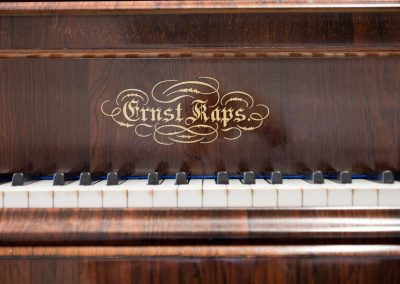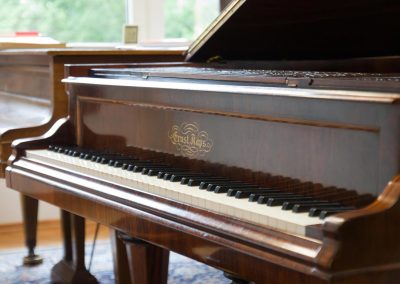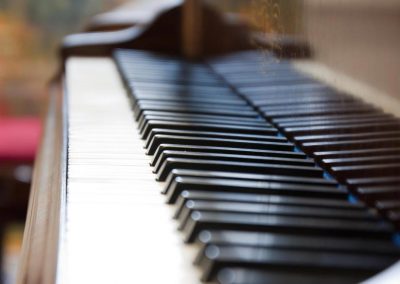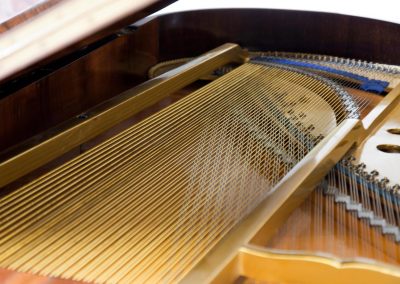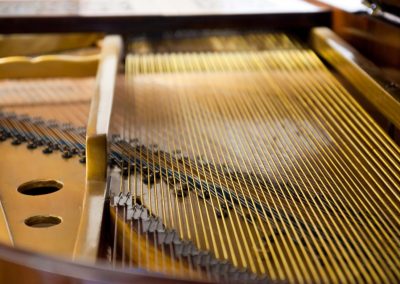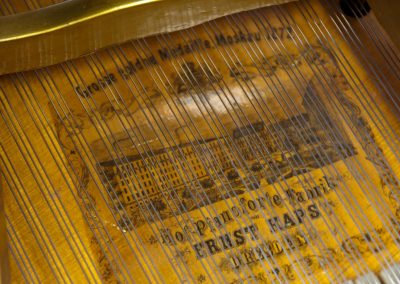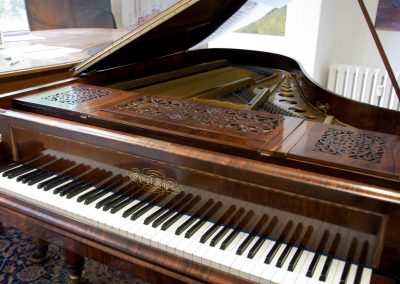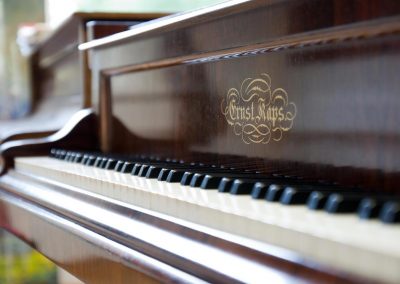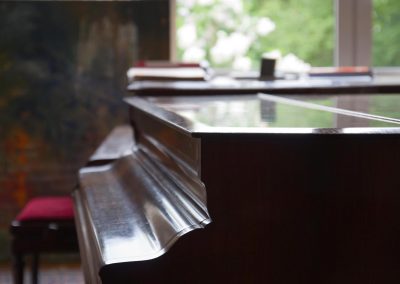
KAPS piano from 1875
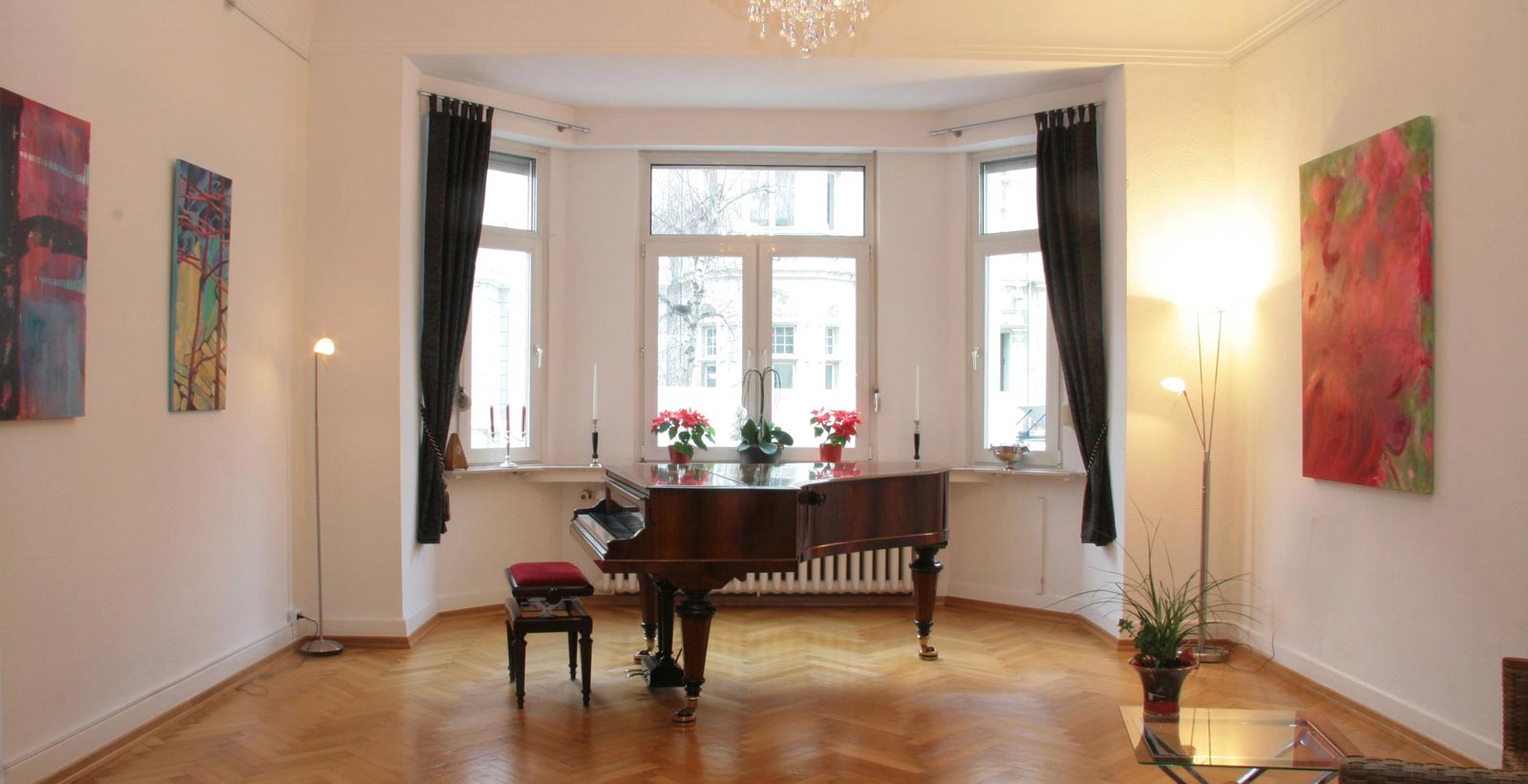
In the Musikstudio und Galerie Gabriele Paqué stands a very special instrument: a piano from Ernst Kaps from the year of 1872. This historic instrument which was built with the prestigious Erard-mechanic is in an excellent condition. It was restored by Frits Janmaat (Amsterdam; specialist for pianos with Erard-mechanics) and is now being cared for by Egon Zähringer, a piano builder and restorer from cologne, who looks after the tuning and intonation of the instrument. Many renowned pianists have already played on this instrument and were excited by the timbre and the excellent keystroke it has to offer in which it sometimes surpasses even modern high-end instruments.
“Ernst Carl Wilhelm Kaps was born on the 6th of December 1826 in Döbeln as son of a carpenter. After the apprenticeship at his father he went on to travel at the age of 17. Since 1849 he worked at the piano workshop of Petersen in Copenhagen, who mostly built tabular pianos, then went on to Baysen, Copenhagen, and learned to build pianos. His trip led him through Stockholm, Paris (at Herz, Pleyel and Erard), Marseilles (at Boisselot), Naples, Rome, Turin to Madrid (at Larroux), Lisbon and London. Bigger business trips led Kaps 1864 to Holland, 1856 to England, Scotland and Ireland, 1867 to Russia. He wed in 1862, became the royal council of commerce in Saxony in 1882 and received the knight’s cross of the first degree of the Albrechtsmedal from the king of Saxony as well as medals from the Swedish, Spanish and Portuguese Crown and the Dutch merit in 1883. In August or September 1884 he became the vice president of the Académie Nationale Paris. He died on 11th of February 1887 and was buried on the Annen-cemetery in Dresden-Löbtau. On his death his company was already famous world-wide.
His older son Ernst Eugen Kaps became the kings of Saxony court producer for piano fortes in 1890. In May 1901 he received the “Palmes d’Officier d’Academie” from the French president. In May 1905 the officer’s cross of the Danilo-Order from the prince of Montenegro. On the 22nd or 23rd of April 1910, at the age of 44, he committed suicide.”
Source:
Title: Lexikon Deutscher Klavierbauer
Author: Hubert Henkel
Publisher: Erwin Bochinsky, Frankfurt am Main
ISBN: 3-923639-37-6
